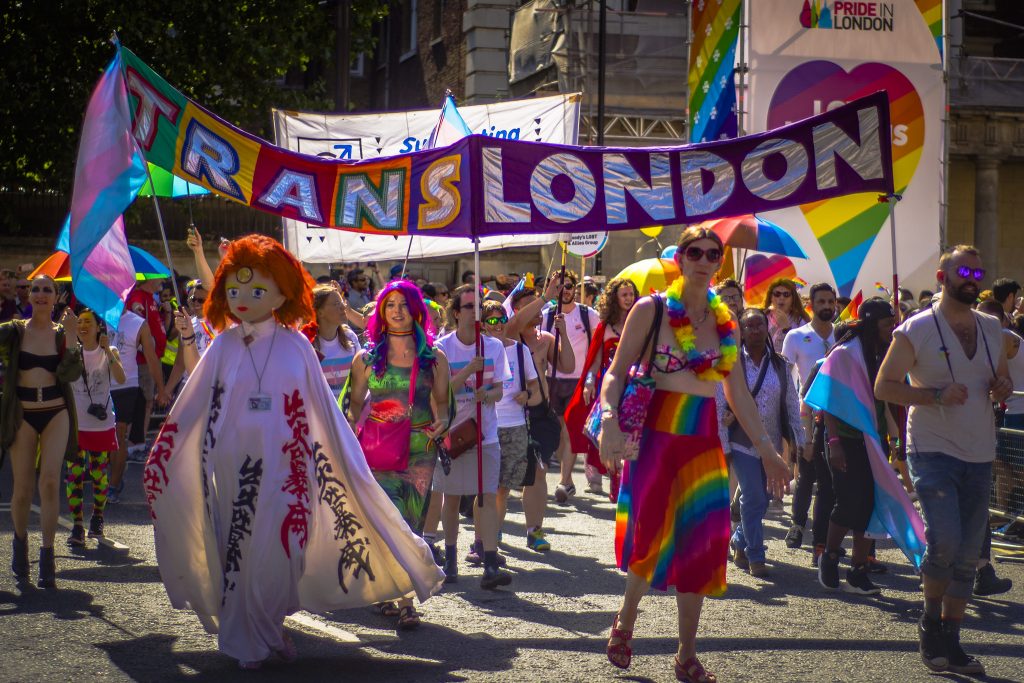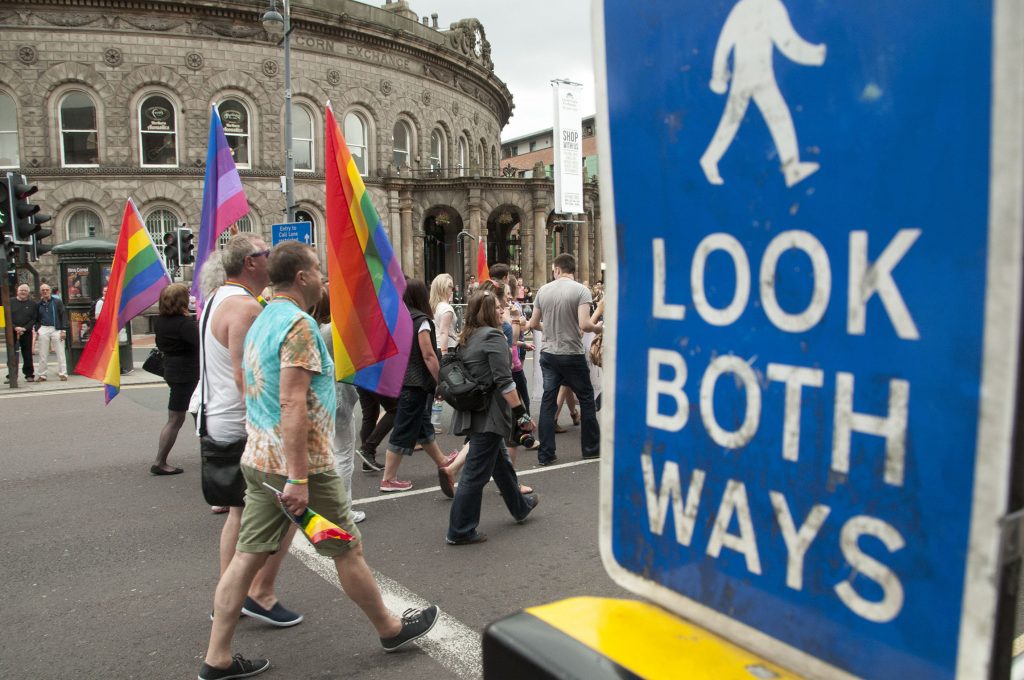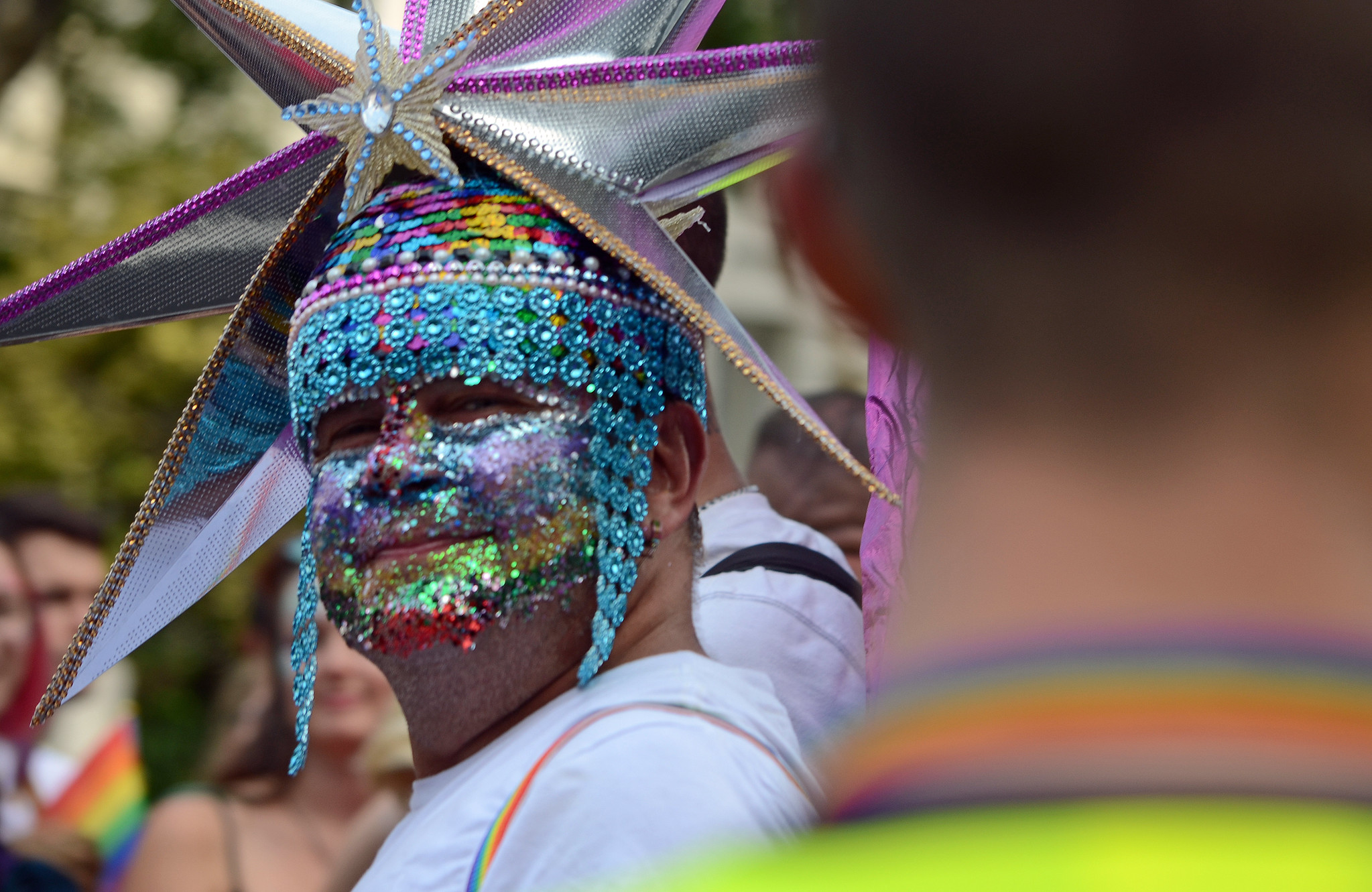I’ve been going to Brighton Pride every year since I was about eight-years-old. That’s over 15 years of Pride celebrations – a small number compared to my LGBTQ+ elders, I’m sure, but still enough to see how the event has changed over the years in my home town. What used to be a free city-wide celebration is now largely ticketed, and year-on-year the parade has gotten much bigger but one thing hasn’t changed: the consumption of booze.
It’s a similar scene at Pride in London, which takes place this weekend. Alcohol is absolutely everywhere. Shop shelves are cleared out, and the streets are left littered with the empty containers. It’s almost a given that if you go to Pride, you have a drink.
Still, among the LGBTQ+ community, substance abuse issues are strife, with a 2018 report by Stonewall finding that one in ten LGBT people experienced some form of addiction in the past year – and an alarming one in six (16 per cent) saying they had drank alcohol almost every day over the last 12 months.
Addiction has been linked to worsening mental health problems, which research has shown disproportionately affect LGBTQ+ people. This is even more startling when you factor in that there are very few LGBTQ+ venues that don’t revolve around alcohol.
Consequently, there are a growing number of people within the LGBTQ+ community who are choosing not to consume alcohol, whether it’s due to addiction issues or as a lifestyle choice. So, what happens if you are LGBTQ+ and don’t drink booze?
An Accessible Pride

Image credit: Flickr
This year, sober spaces at Pride have become a large talking point because of the Outside Project, the UK’s first LGBTQ+ crisis and homeless shelter.
The group was set to join Pride in London’s official parade this Saturday (July 6), but activists at the Outside Project say they were unable to after organisers allegedly told them they needed to make their bus, which doubles as a shelter, more “visibly nice” – something the group couldn’t afford to do.
As an alternative, Pride in London suggested those involved in the organisation march without the bus. “They told us that shelter guests could wear masks, matching shirts & face paint to ‘blend together’ instead of using our bus,” the group explained on Twitter.
“We asked for a sober space for people in recovery and were told to use the family area. We pointed out that family rejection is a huge cause of homelessness,” added the Outside Project.
We asked for a sober space for people in recovery and were told to use the family area. We pointed out that family rejection is a huge cause of homelessness.
The Outside Project
Now, the Outside Project has ditched the march and will be leading an unofficial march at the back of the parade along with other organisations supporting queer migrants and other marginalised identities who were unable to get involved in an effort to “reclaim” Pride.
The incident raises a lot of questions about how Pride has been commercialised and detached from its original Stonewall Inn riot roots 50 years ago. Although requiring a sober area drove the Outside Project’s decision, it has also drawn attention to the need for a safe space for all communities at Pride.
How Can You Make A Sober Pride Work?

Image credit: Flickr
If you are making the decision not to drink yourself, or want to help a friend or partner not drink during the Pride season, Monty Moncrieff, the CEO of the LGBT+ health and wellbeing service London Friend, says there are ways to overcome the difficulties.
“Whilst Pride is still a protest for LGBT equality, for many it’s now also a celebration of our identities and communities, so it can sometimes feel like the party is the main event,” he told RightsInfo.
If you’re going into the thick of it in tell friends about your intentions not to drink, or to drink moderately and why this matters to you – good friends will help you stick to your plans
Monty Moncrieff, the CEO of London Friend
“The important thing is to remember Pride is for everyone, and you can celebrate it in a way that feels right for you with no pressure.
“Find a space in a park and enjoy a picnic in the sunshine or explore the many arts and cultural events happening in the wider Pride programme – it’s not just for one day.
“If you’re going into the thick of it in tell friends about your intentions not to drink, or to drink moderately and why this matters to you – good friends will help you stick to your plans,” he added.







